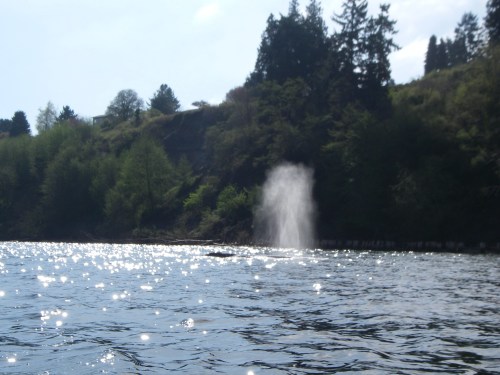
Fridays and sailors don’t get along, so I’ve been told. And no sailor in his right mind would begin even the shortest journey on Friday the 13th if he could avoid it. Perhaps that’s why Ed Young and I were the only two people at the harbor that morning.
Last Christmas I decided to purchase myself a gift certificate for a two-hour tour with Whidbey Island Kayaking Company. I had previously enjoyed kayaking in California, but always on a lake-reservoir. Now I was hoping to have as much fun in the ocean as I’d had on the lake. All winter I waited, looking forward to the day when I’d slip gently between swelling waves, leave life’s worries behind and paddle my happy craft along the coast. It had seemed to take forever for Spring to come, but finally, at long last, Spring and I arrived at the harbor along with my inner child, who, bouncing like Tigger, threatened to make me act sillier than adult behavior decrees.
Ed and his wife began Whidbey Island Kayak Company as a retirement project ten years ago. With a generous assortment of kayaks and well-trained guides, Ed and his crew take tours out of Langley Harbor. For many of Ed’s guests, this is the first time they’ve ever sat in a self-powered boat, let alone a kayak, so before launching, Ed takes time to help each person become accustomed to the feel of the vessel and to learn basic safety techniques.
Kayaking season around here usually begins in March, along with the migration of Orcas and Grey whales, but smart ocean kayakers wait for relatively calm weather. This year the March Lion refused to make way for the lamb. All month I waited as Mother Nature released her vengeance; she down-poured and flowed; she gusted and snowed, and I desperately tried to be patient. Come April and our first day of partial sun, I called Ed. While he checked his tides list, I checked my weather forecaster. The week beginning April 8th looked encouraging for late morning high tides, when whales were most likely to be feeding, but Monday through Wednesday had predictions of wind gusts up to 25mph. “Thursday the 12th looks good,” said Ed.
“Sorry, I’ve got several appointments that day.”
“Are you superstitious?” he asked. “We could go on Friday the 13th.”
I respect the ocean and her moods, but I have no time for superstitions that curtail my opportunity for exercise, wonder and just plain fun. “Friday the 13th sounds perfect,” I said.
Langley Harbor lies at the bottom of a 300-ft. cliff on the eastern edge of town. If you stood at the end of 2nd Street, it would be easy to miss seeing the harbor altogether, tucked tightly below the coastal road. As I drove down the small lane that, carved diagonally into the cliff, hugs verdant growth, I wondered just how much the rising seas and rain erosion threaten the road. At the bottom, the shore broadens out, leaving enough room for a few guest houses, a pub and some harbor parking.
Ed arrived just as I parked my car. There were only two of us that day, so he unloaded a two-person kayak, which was fine with me. The water was calm at the moment, but oceans have a habit of changing almost without notice, and I was grateful he’d be in charge of our vessel on my first time out. After we geared up and went through the safety review, Ed decided to visit the public toilet across the way. Just as he turned to go, I gazed out to sea. Suddenly a heart-shaped mist appeared above the water and then dissolved about 100 yards from where I was standing.
“I think I saw a whale,” I called to Ed.
“What?” Ed stopped and waited to see if anything more broke the surface. He hadn’t seen the spray, but gave me the benefit of the doubt. When no other sign presented itself, he said, “I’ll just make a quick visit and then we’ll head out.” At that moment, two whale-sprays appeared about 50 yards away from me. “Forget the bathroom,” Ed said. “Let’s go!” He pulled the kayak into the water, told me to get in and adjusted my footrests. A minute later we launched, eyes peeled on the spot where the whales had been spouting.
Moments after we launched, one of the whales breached the water’s surface, his spine looking more like the Loch Ness monster than what I had expected. I was used to seeing Orcas with their characteristic dorsal fin, but not this smooth-backed creature. “It’s a Grey whale,” Ed said. “Judging by the length of our 20 ft. kayak, I’m guessing he’s about 30 to 35 feet long.”
Unlike Orcas (Killer Whales) which are members of the Porpoise family, Grey whales have no dorsal fin. We kept a respectful distance to avoid disturbing their feeding, but they were well aware of us. Every few minutes, a giant barnacled head would emerge, and one eye, just above the water-line, would stare directly at us. A bulge on top of the head revealed two nostril-like holes or spouts before the whale retreated below the surface.

A minute later, the pectoral fin would rise like a wind-filled sail, giving us the whale’s version of a High Five.
His giant fin was patterned in shades of black, grey and white. Just as one sees pictures in clouds, I made out the profile of a smiling sea lion on one whale’s fin. “The patterns are formed by barnacles,” Ed explained. I hadn’t brought my camera, but Ed used his phone to take dozens of pictures. Many electronic cameras these days have an annoying time-lapse after you snap the shot and Ed’s phone camera was no exception. We wished the whales would stay still long enough for him to capture these remarkable moments, but of course, they paid no heed to our desires. All we could do was hope for a least one good photo.

Just as cows or sheep meander through meadows while they graze, so did our giant friends. Their movements were surprisingly slow and relaxed. I half expected to hear a whale version of the bath time song Rubber Ducky bubbling up from below as they lay on their sides and scooped sand, filtering it with their tongue against baleen screens.
For over an hour, we paddled and rested repeatedly, working our way gradually east-south-east while the whales seemed to accompany us between feeding stops. In one deserted spot, the whales swam so close to the shore, a person standing on the tiny beach could easily have waded out and touched them, but no one was there. Ed and I were their only witnesses and we kept our distance.
Ed was the perfect guide. He shared his knowledge about whales and tides and matters of the coast, and he spaced his talking between generous layers of silence, leaving me room to enjoy the paddle and merge with the sea adventure. “Over the years I’ve come to know their habits, so I can often successfully predict where the whales will be,” Ed said. “Some of our guests have asked me if I was a whale whisperer,” he laughed. He went on to explain more about the two giants we were watching.
Grey whales migrate every spring from the warm waters off Baja California where they spend the winter months mating and giving birth. They don’t feed during that period. Southern waters contain no food fit for a baleen whale. These hungry creatures were now en route to the waters off Alaska where they would fill their bellies with krill, plankton and other delicacies. Over the years, a dozen or more members of the Grey whale population had learned that the surface layer of Whidbey Island’s shallow coves was rich with tiny crustaceans. This particular small group of opportunistic travelers made an annual fast-food stop here before continuing on to their northern destination. I guess you could say they keep Whidbey’s secret from the other whales, much as a fisherman jealously guards the location of his catch. Islanders wait for the Grey family every year and some of the members are easily recognized, especially the elder male, named Patches.
Last year, people stood on the shore of Penn Cove, just north of Coupeville, and watched in horror as Patches battled with a pod of transient Orcas that were trying to kill one of the two youngsters Patches had in his charge. He put up quite a fight; the Orcas eventually gave up and left to hunt elsewhere for easier prey. But everyone saw the blood. Patches had suffered injuries that could be fatal. He disappeared that day along with his charges, and wasn’t seen again for the rest of the year. “He’s an old trooper, over 40 feet long, and we’ve all come to love him,” Ed explained. “You can imagine how thrilled we were last week, when Patches was spotted off Harrington Lagoon. That tough old whale made it through another year.”
When our kayaks neared Sandy Point, Ed suggested that we paddle well ahead and get downwind of the two giants. The bays on either side of Sandy Point are favorite feeding spots, and we didn’t want the whales to feel pressured to move on because of us. As soon as we paddled ahead, they followed our kayaks and stayed much closer than we expected. It’s easy enough to stay out of a whale’s way when you are following him, but when he starts shadowing you, there’s not much you can do to keep your distance. Did they know where we were going? Were these whales playing tag with us or just curious? Perhaps they thought we were racing them to the feeding ground, trying to claim the feast for ourselves.
After we got downwind, the larger of the two whales spouted, and the wind carried his spray to our nostrils. “Can you smell that?” Ed asked. Just as a gardener breathes in the deep aroma of damp earth and rich loam when his spade lifts the soil, so we inhaled the fresh, warm scent of sand, crustacean and whale breath. I held the expired air of a whale in my lungs and sat there in awed wonder. Goose bumps traced my awareness of whale-spirit up and down my arms. Before that moment, I had been fascinated by whales and concerned for their safety. Now, I became acutely aware of our interconnection; our very existence linked as the atoms of spiraling DNA. We were separate parts of one whole, clearly conscious of each other. Was this was the lesson I’d been sent to learn?
A ribbon of foam on the surface of the water gave evidence that the tide had just changed. A brisk wind carried chilly gusts that whipped up the previously calm surface, and churned the sea with intention. “We’d better head back,” Ed advised. “It’s going to get a little rough.” We turned the kayak around, and I glanced over my shoulder, hoping for one last glimpse of the whales. At that moment, the two silent giants made a dive into deeper water. Their graceful tail flukes rose towards the heavens, and they seemed to be waving us goodbye.

There was no time to sit and gaze. The sea, which had been sparkling blue had now turned black and ominous. Waves grew choppy, some hitting us head on and the occasional white-crested one would smash our bow, spraying my face and dump fistfuls of freezing water into my lap. I felt as if the ocean was teasing me, trying to see if I’d succumb to fear. But the vigorous paddling energized my body, and the cold wash of wind and wet was exhilarating and just plain fun. I smiled so hard and for so long on that paddle home, I feared the smile would weld onto my face in a permanent Cheshire Cat grin. The thought made me laugh. It’s impossible to be miserable when you’re smiling.
“How are you doing?” Ed asked as we reached the halfway point.
“Fine!” I replied. “Were you worried about me coping with these waves?”
He was quiet for moment before saying, “I’ve learned over the years that there is one thing a guide should never say in the kayak.”
“What’s that?” I asked.
“Uh-oh.”
I burst out laughing and imagined the expression on guests’ faces when their guide let loose the ominous sound. Ed’s sense of humor is one more attribute that makes him an excellent kayaking companion.
For the next forty minutes, a bald eagle flew between us and the shore, hunting and resting on Douglas fir branches, then swooping over the water again. He accompanied us all the way back to the harbor in the same way as the whales had led us out, and I felt almost as if he’d been sent to ensure our safe return. Every once in a while the sun would flash on his pure white tail feathers like a wink of encouragment and a hearty ‘Well done.’
I thoroughly enjoyed our invigorating paddle back to the harbor. We made it back in pretty good time. “In the ten years that I have been taking tours out,” Ed confessed as we unloaded the kayak, “I can think of only four times that were as remarkable as today. We will often sight the whales in deeper water, about half way between here and Camano Island, but they come nowhere near as close to our kayaks as they did today. We usually expect to have a few minutes of sightings at this time of the year, but you had at least one hour with two whales. That’s incredible. It seems your Friday the 13th turned out to be an unusually lucky day.”
If you haven’t taken the opportunity lately to enjoy the simple pleasures of putting paddle to water and exploring our beautiful island coast, why not treat yourself? Let Ed or his guides take you safely through an unforgettable morning or an afternoon journey.
For more information and contact details, visit their website: http://www.whidbeyislandkayaking.com/
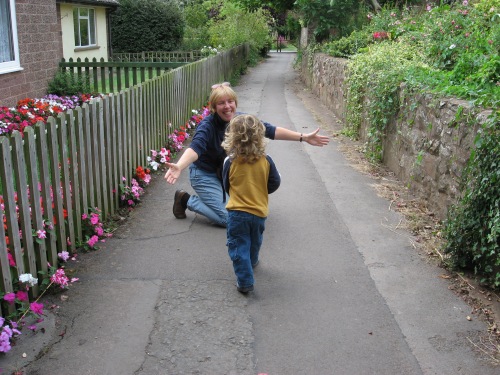

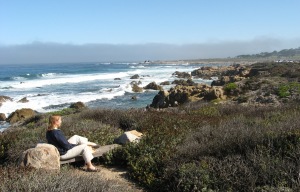
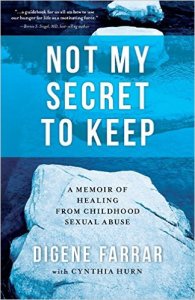
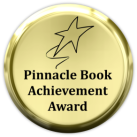
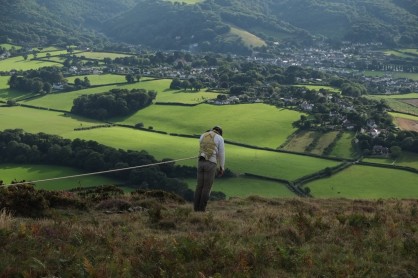
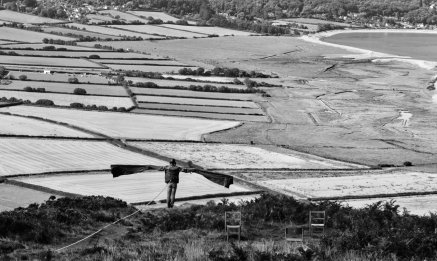

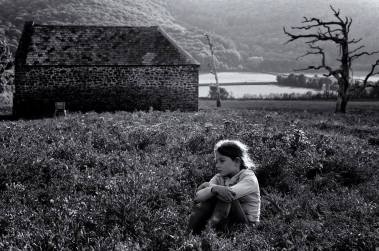
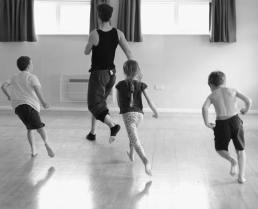
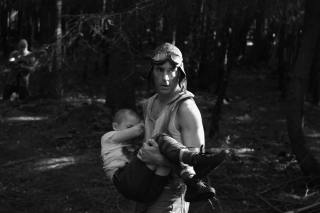


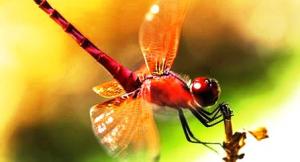
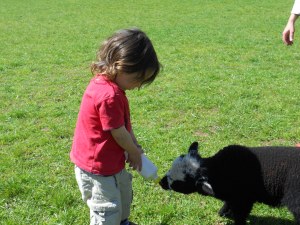

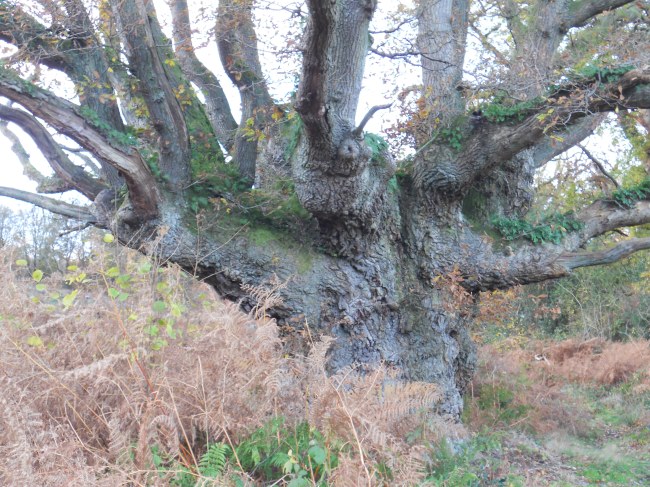

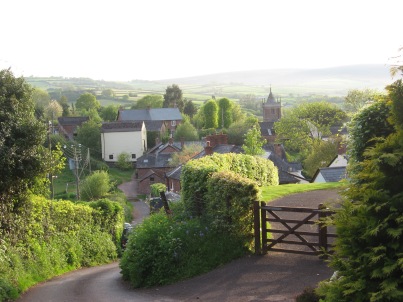
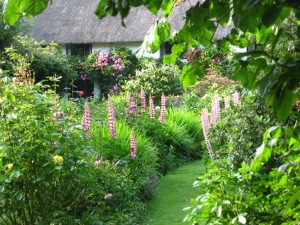
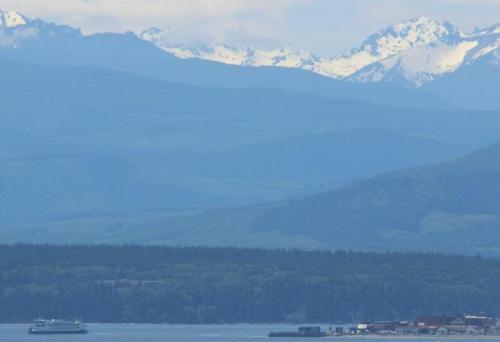


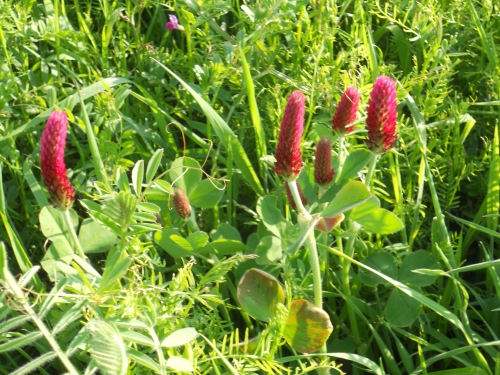



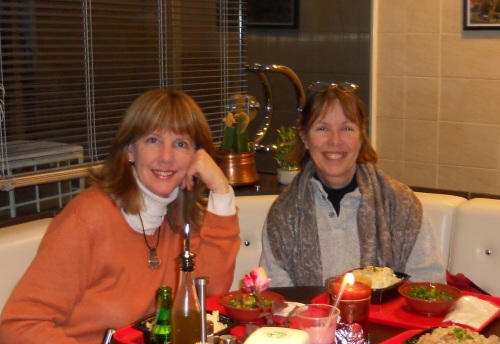
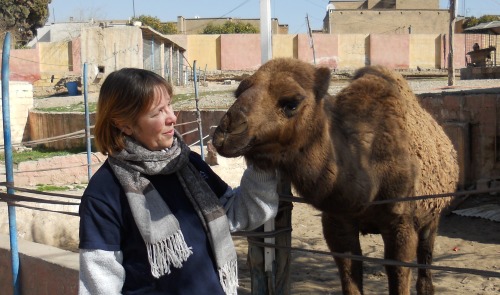





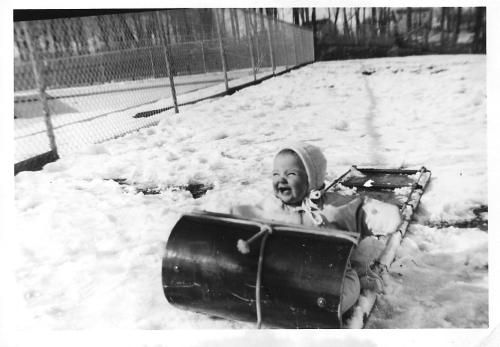
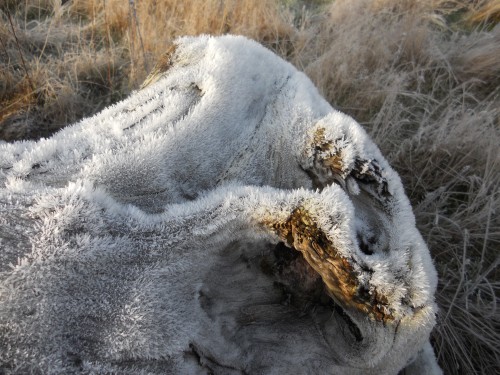


You must be logged in to post a comment.